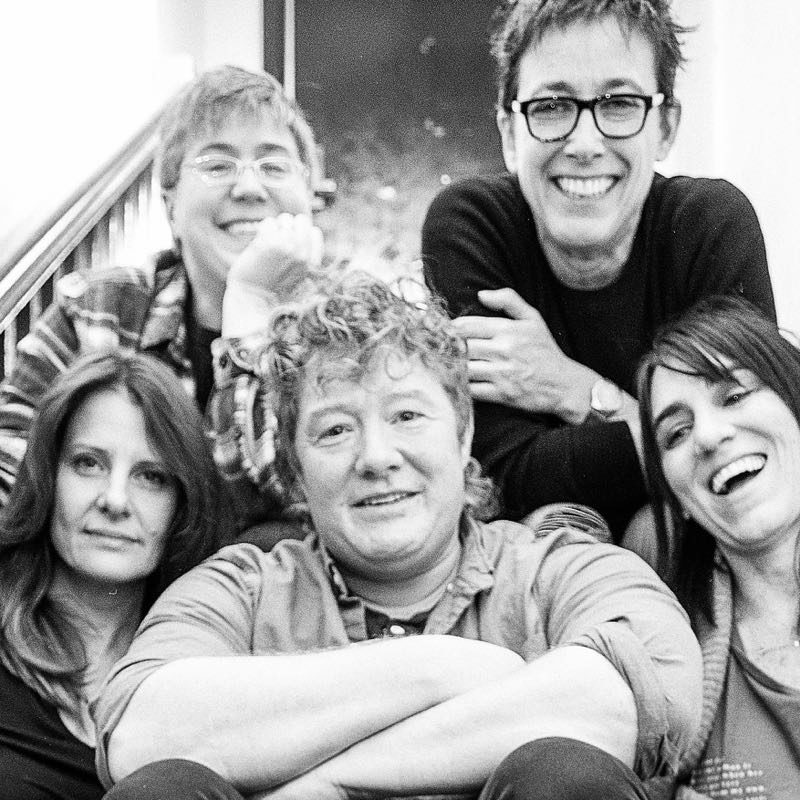The One With Hurricane Diane

February 5th, 2019
“I feel like we just did the most gruesome marketing ever: ‘Come to the play! Encounter your grief and sorrow! Grapple with your own complicity! And wonder if it’s all worthwhile! But it’s really funny and also like Friends.’” – Madeleine George upon completion of this interview.
This interview is with members of the cast and creative team of Hurricane Diane, the new play by Pulitzer finalist (and marketing genius) Madeleine George that begins performances February 7th at New York Theatre Workshop in a co-prodcution with WP Theater. With a nod to Greek drama, Hurricane Diane addresses the questions of how a person should exist in relation to society and fate, plopping the God Dionysus, disguised as a permaculture gardener named Diane, down among a group of suburban New Jersey Housewives. The play explores our individual and collective conscience on climate change—and also grapples with our own complicity, wonders if it’s all worthwhile, and references Friends, which are some of my absolute, all-time favorite things.
About two years ago, right before Trump’s inauguration, I spoke to Madeleine about writing Hurricane Diane, and also questioned the veracity of her claims about the mental state of her dog who was traveling in Michigan at the time. A few weeks later, I saw the first production of the play at Two River Theater in New Jersey, which involved me going to New Jersey, where I had never been before and where I got lost walking three blocks from the train station to the theatre. And where, somewhere on my way home, the program for the show fell out of my coat pocket, an event that for roughly 17 days I was convinced was some sort of bad omen, although a bad omen for what I couldn’t tell you.
Two years later, I spoke with Madeleine again about Hurricane Diane, along with Mia Barron, Michelle Beck, and Danielle Skraastad who play three of the suburban women; Becca Blackwell who plays Diane; music director Ellen Winter; set designer Rachel Hauck; and director Leigh Silverman, who I have written a definitive in-depth profile and commissioned a behind-the-scenes photo essay on, and who has done like twelve other things with The Interval including our upcoming short film. Additionally, Leigh is the namesake of small cactus that lives on my bathroom windowsill, which died a few months ago but that I refuse to throw away because I don’t think it is out of the realm of possibility that it could come back to life.
Anyway, the only other thing I really want to say is that being a person in the world is really fucking hard, and this is The One With Hurricane Diane.
What was the thing that most jumped out at you about the play? What was the thing that drew you to it?
Becca: The reason I did this is because I had never ever seen a masculine person with a vagina on stage in my whole life, except Peggy Shaw in 1996, here in this theatre, doing Menopausal Gentleman. And around that exact same time, the only time I had ever seen it in a film was Queen Latifah in Set It Off. And I’d never seen any sort of masculine, butch person ever. Ever. And so I said yes to this. Even though I take testosterone, I’m a proud vagina-haver. I have lived most of my life as a masculine person with a vagina, and I’ve been fully invisible in the entertainment industry, and I have gotten much further taking testosterone than I ever did as a masculine woman. It felt really exciting to even have the opportunity to have someone write this kind of material, and that it comes during this time in our world. Because usually, masculine woman are played by not-gay women or by feminine woman who put their hair in a low ponytail and say they’re masculine. So for me, that was really important. And then, obviously, any sort of political thing gets me all juiced because I started my art as an activist, because even my body in space was a form of activism, whether or not I wanted that, which I think most people who are marginalized have experienced. [The play] was a really great hot bed for all of that.
Mia: The play is so tonally rich and ambitious, it’s wildly funny and then it’s frightening. The transformation is frightening, not just in the character I get to play, but in the play itself. I have found very few pieces of art that are able to take on all those things at once, and do it in such a full-blooded way. So it felt rare. I had known Madeleine and Leigh, and Danielle I went to grad school together, and to work with real collaborators that I have a history with and to feel the sense of trust and know the level of exploration that you can start from when you know people and trust and value each other, it made me feel eager on all fronts.
Michelle: It’s really hard to distill what drew me to it into one thing, but there’s something about the bacchanal and the Bacchae that I find so deeply interesting. Especially in a time when people believe climate change isn’t real and there’s so much resistance to environmentalism, it feels both important and interesting to have a piece that drives home that we do have a responsibility and we have an ability to have an impact; that there are things that you can do to make the world a better place. And the play doesn’t feel cheesy or saccharine. It’s funny, it’s deep, it’s complex, it’s interesting, and it’s really masterfully done.
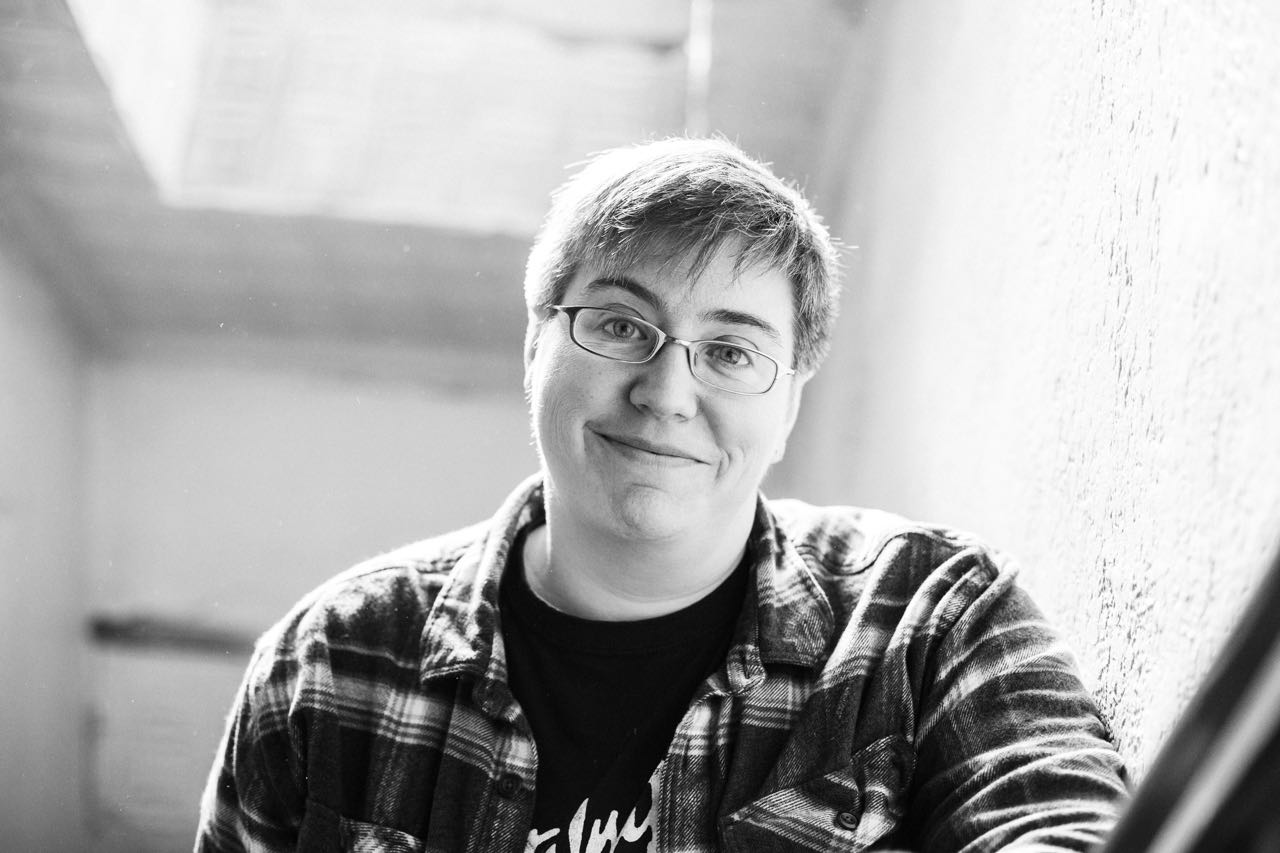
Madeleine: I feel like I should leave.
Becca: No, you need to hear it. I need to hear it. Because I feel like, at least for my [generation], if you were raised as a woman, whether or not you felt connected to that word, you are in a state of constantly questioning, “Is this okay? Am I alright?” I don’t think it’s that men don’t feel that way, it’s just a very different consciousness that they have.
I feel like we as humans need to get back to nature. We’ve gotten really away from it with gadgets and things like that. We start to think that nature is a video game that we play around with and we don’t see the long-term effects. I feel like this is a great way to get back to deserving nature again. I think nature has always been there. It’s like this really beautiful, nurturing, and yet severe mom-aunt that’s kind of constantly being like, “I’m here. I’m here. Let me remind you I’m here.” I feel like she’s always going to be the winner. We’re the ones who are going to be affected by it in a systematic way more that she is. She’ll figure out how to take care of herself.

Michelle: Did you read about how during the government shutdown, there weren’t people who were on staff at Joshua Tree and all these people came in with their four-wheelers and just decimated this natural park?
Leigh: They say it’s going to take 400 years, I think, to restore the damage that was done during the shutdown.
I was really interested in when Madeleine and I were talking in the case book [a program run by NYTW that lets audience members find out more about the production process], that even though we’ve worked on this play for many years together, I didn’t know what the question was that Madeleine was writing to in this play, which I thought was really interesting.
Madeleine: In that conversation, I was talking about my life and my career and I was saying that it’s like I have these two lives. I’m a teacher and a writer. As a teacher, I feel really masterful. I’m really good at it. I’ve done it for a long time. It’s super easy for me and it comes very naturally, too. I use my playwriting, which I’ve also done for a long time but do kind of slowly, to figure out the things I can’t understand. That seems like a great split, except for the fact that The New York Times then comes to watch me flail around helplessly on stage trying to solve, for me, unsolvable emotional and philosophical problems—why can’t they come and see me kill it in the classroom?
The question that I was groping towards in this play is I feel like climate change, nobody wants to [deal with]. My partner [Lisa Kron] was telling me that when she was at the Women’s March, some people got up at the rally, after the rally was kind of cooking, and started talking about climate change and the place emptied out. Everybody is just like, “Nope, nope. Can’t.” And these are progressives. Nobody wants to think about it, nobody wants to talk about it. It feels like it’s just going to be like somebody hitting you with like a slab of concrete and there’s nothing you can do.
So I didn’t want to write about what we should do per se, but I did want to write about this thing that happens to those of us who live in developed countries where we have resources, which is: how do we live with ourselves? All of us, right now, at this very moment, are operating a variety of petroleum-driven instruments. All of us. And we’re sitting under light. And every time we write an email, we contribute. And we cannot seem to change our lives because it seems as if, in order to change our lives, we’d have to change everything about our lives. You can go off the grid and live like a hermit, and then maybe you feel like you’re doing something for this thing, but we know we’re not going to do that, and so we persist. So we know and we know and we know that we’re doing ourselves in and we persist and we persist and we persist. So that’s the question: how are we tolerating ourselves at this moment? How are we living inside that? And the characters in the play are each doing a different thing to manage that. Everybody knows that the world is coming to an end, but we all have to make our own way through that problem.
People who are in more dire circumstances don’t have the luxury of that interesting philosophical problem. The ocean is already going to swallow their island, or they live in Greenland and their food systems are already destroyed. So they have a different, more profound set of problems. But this problem that we have here, this is the audience’s problem, I’m assuming. What do we do? How do we live inside that? It’s like, our government is doing evil things on our behalf all the time, how do we live with that? But this is not happening on a far shore. It’s happening, literally, on this shore, but we still can’t seem to break it out.
Danielle: It’s interesting to listen to you talk because I’m like, “Oh, then of course Madeleine thought of the Greeks.” Because you have a message given to all of us, and yet we continue to act in a way that makes what was foretold come [to fruition]. And we are the engines of our own demise.
Madeleine: The Greeks were interested in two things: democracy and fate. They were interested in this problem of the individual and the collective, and the individual and the unfathomable. How do you be a citizen, how do you take responsibility for your own choices, and then also, at the same time, P.S. you can’t. The scope of fate is so huge that you’re not going to be able to manage it. All the best Greek plays, they don’t resolve.

Rachel: Do you remember when we had our very first meeting about this in my studio? And as we were trying to figure out how to do the storm for the first production, there was a most horrific storm, you remember?
Madeleine: Oh yeah, that was so amazing.
Rachel: We just had to stop.
Leigh: It was actually so loud we couldn’t hear each other in the studio. It was bananas.
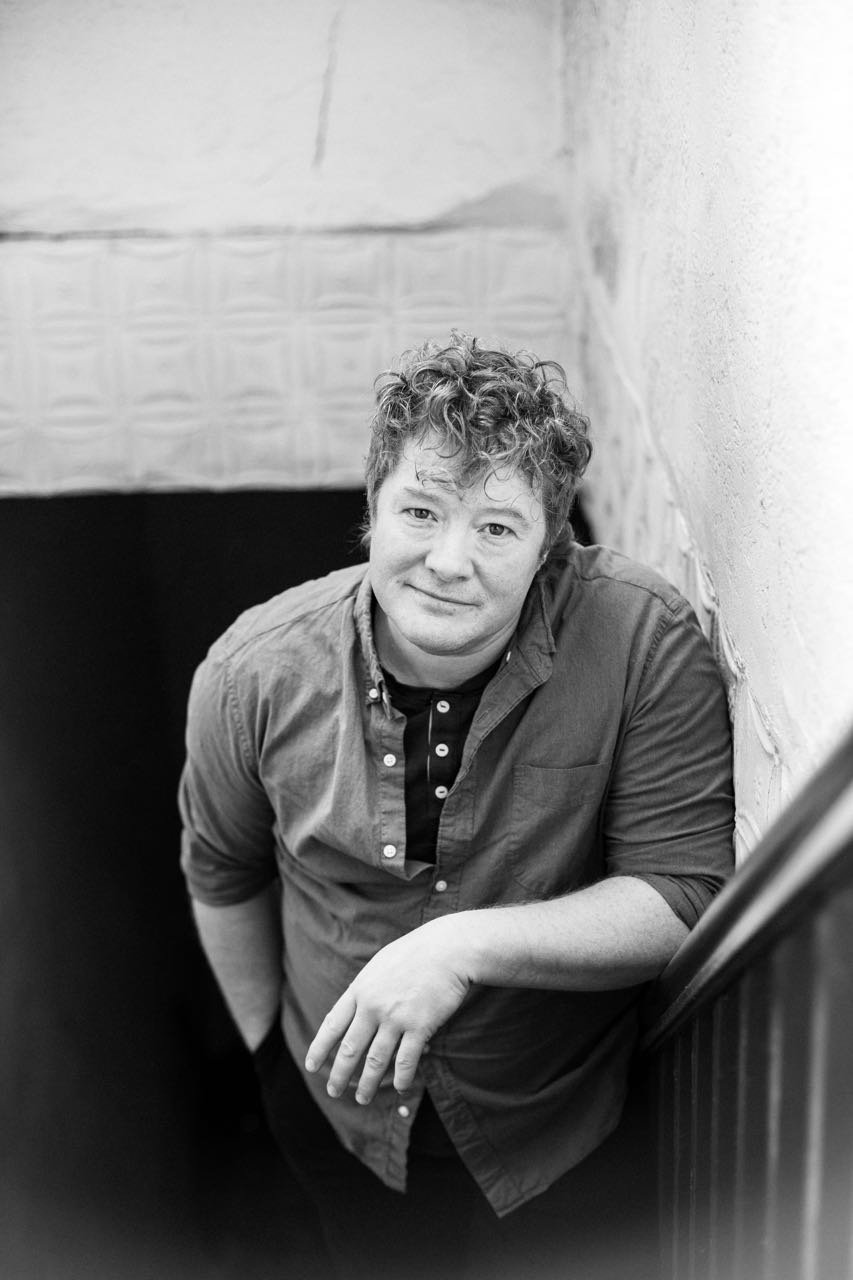
In the writing and in the physical staging and performance, how did you balance the micro and the macro, the big ideas with the actual, moment to moment storytelling?
Ellen: Something that I love that The Bengsons [who composed original music for the show] have put together with the music is they’ve really tied and created this pallet that is bringing together the natural world of New York, of New York Theater Workshop, of the physical space, with these primal, ancient vocalizations that are really exciting to hear coming out of the mouths of the wonderful humans in this room. It’s just so exciting to hear musically how that’s getting threaded throughout the piece. Because when I read this play, it was the thing that stuck out to me. There was so much that was so moving, but what I loved about it was all of the relationships. The relationship between Diane and the earth, and the relationships between these women that allowed this story to be told in a way that never felt preachy. That never felt saccharine. That felt really true to them. So it’s exciting and thrilling to discover how the music becomes embedded in that world through the discovery of these women and their own voices, which are being liberated by Diane.
Mia: It is like a Greek play in some real ways because it requires a certain size. It’s deceptive; it seems natural in the beginning but it actually requires a certain heightening, and both the truth of it and the heightening of it have to be there. Even though we’re all aware of the complicated fluctuating tones and the growing size, Leigh is really the person that is able to have her eye on that shape and we all trust her to do that, which is an amazing situation to be in, where the director can see that whole curve. I imagine another reason we all really love working on this material is because of that dual task of interior truth and attachment to what’s actually happening, and the commitment to the unbelievably big ideas about the fate of our planet and the fate of us on our planet. It’s an intoxicating mix to try to find.
Rachel: In terms of the design, making sure that the wicked comedy is possible, but finding a way to explode the world visually is a really super exciting challenge, and a challenge indeed. What Madeleine is writing about and the multiple layers that she’s writing on, the longer we work on this piece, the more exciting those links become between the ancient and the modern. And through these performances and through the way Leigh is shaping this, and the Bengsons’ music—which is absolutely, exquisitely doing this modern, primal thing—it’s really tricky to walk between these worlds in terms of what Madeleine’s talking about and how she’s talking about it. The idea that you can find a way to connect through these brilliant performances and this wicked comedy, and a way to hear the heart of the play is incredible. You can’t not recognize yourself in that, and I think that’s a remarkable situation to be in. Because we are all culpable, so to find a way to tell that, and to allow the story to start Greek and become modern and then return to Greek in its scale is a super exciting challenge.
Leigh: This is kind of a dream situation for me because I like a play that’s a shape shifter and I like working with Madeleine a lot, and I really like working with a group of people who are willing to just fucking go for it, and to mind-meld with Rachel and Ellen and our design team and Raja [Feather Kelly], who’s doing our choreography. They’re such great thought partners. It’s also a play that has a tremendous ambition and I think we all are working to meet that challenge in really interesting ways. It requires a lot of all of us to figure out how to meet the world that Madeleine is creating, so it’s made the process and the thinking about it and talking about it incredibly dynamic. I think it requires endless challenge to all of us, in all different ways: tone, style, performance, visuals, how to tell the story, how to move an audience from a robust comedy to a Greek tragedy. It is thrilling and, personally, terrifying. But that’s the great, unbelievable excitement of working in this way, and I can’t imagine being surrounded by better people to try and do that. It feels like a really worthy endeavor right now.
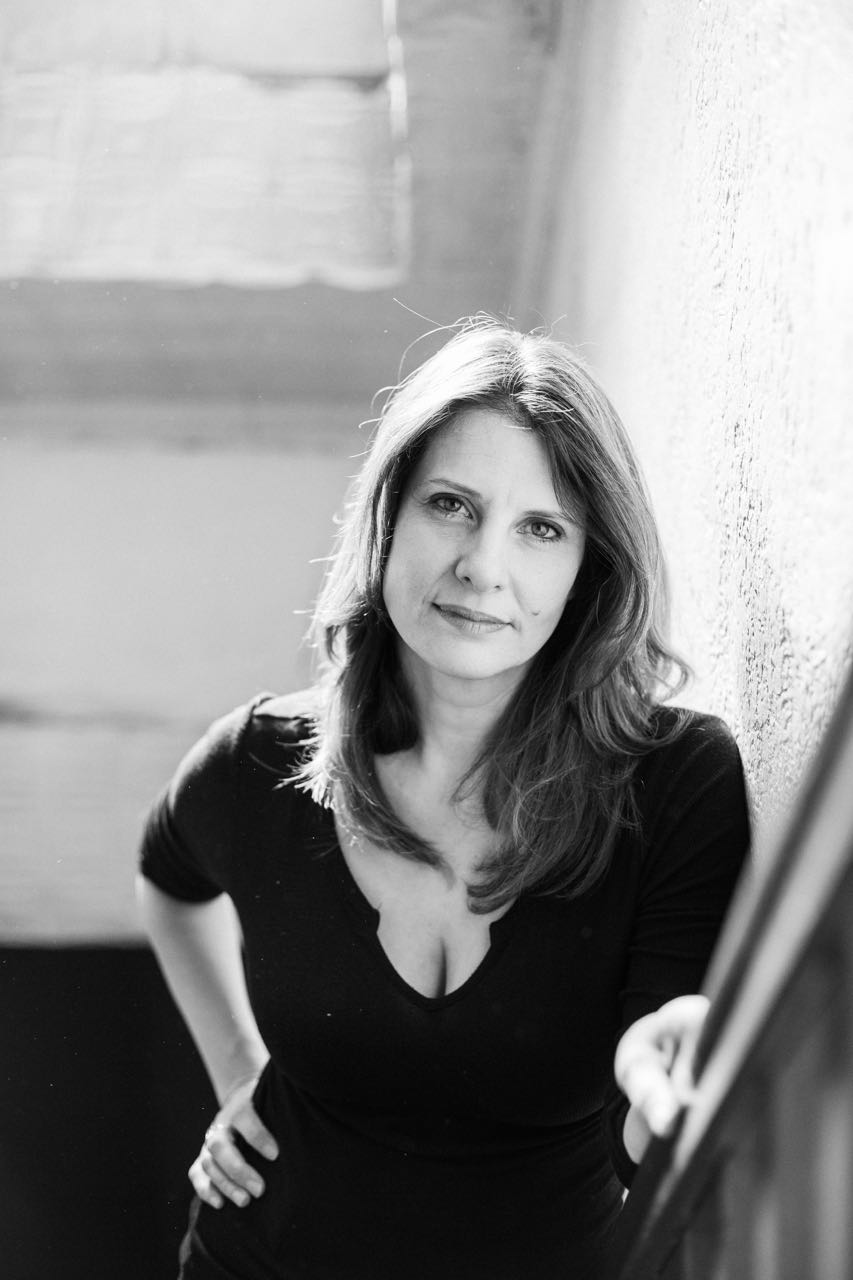
Hurricane Diane plays on female archetypes, and particularly suburban female archetypes. How have you approached that? And how do you feel that that connects to the larger themes of nature versus societal issues and societal constructs?
Leigh: We talk about it a lot.
Mia: And it’s shifted. At least for me, it has recently. It has also been a pleasure that with this play we had a few years in between [the last production and] now, and there’s been a lot revelation in that. There’s that weird osmosis that happens where, all of a sudden, you see something that you hadn’t before. I feel like the archetypes are there because comedically they just fundamentally work. It’s an electric combination of comedic archetypes that Madeleine has crafted. But I think what we’re looking at more this time and in a more detailed way, because we know more about the bones of the play and now we have more time to actually dig in, is how they also function as recognizable people to the audience. Where they can’t look away from them and say, “Oh, they’re just this crazy thing, and I have nothing to do with that.” That’s definitely something Leigh and I have been working on with my character, is getting her to a certain scale in which people still recognize themselves.
Leigh: I think it’s really important that these people feel familiar, not just so that we care about them and love these women, but so that we see ourselves in it. And one of the things that we talk about [in terms of] where we start off in the play, is that it has to feel [like it exists] on a human scale so that we can get to the Greek scale or the God scale. In a lot of ways that was less apparent to us earlier in the development. I think it’s something where if it feels too distanced from us at the beginning, it lets the audience off the hook, it lets us all off the hook, because [it feels like], “We are not like them,” as opposed to, “We are exactly them.” We can see and understand and appreciate and laugh and engage on that level, and that’s how we hook them in.
Danielle: I would say I recognize either myself or family members in every single character on the stage. They resonate as true, and at the same time, they do seem epic. And in that way, they become these kinds of spokespeople for all of us, that we can see ourselves in all of them.

Becca: I recognize my mom sometimes in how we’ve re-developed the beginning part. It’s heartbreaking too.
When we worked on this two years ago, it was right when Trump was elected, and I think there was something in us that was definitely gutted. I think we didn’t even know how to work on a play in this way. We were like, “We should cancel this show during the inauguration.” We wanted to go march. I remember Two River Theater was like, “No. That’s not even on option.” We’re like, “How can we perform? Look at this world!” I think it’s really easy for us to sit in our little social media spaces and put people in these boxes and really step away from ourselves. I do that, and I’m trying to change that narrative in my own head and be like, “How do I understand?” Because no matter what, even if I want to totally detach myself from things, I am involved. I am a part of the world, and I want to be involved in the world to help it change. Not to judge and sit on the side and be like, “Oh well, I’m not that person.” And then with these developments with this play, I’m like, “Oh, this is my mother,” who desperately wants to have a unit and a family and be connected, but then is alienated from things outside that she’s afraid to really participate in. When you really start to want to experience change, it’s starts within and has to outwardly happen, and that is a terrifying place to go.
Madeleine: I was thinking about this a lot because I’ve done this now a bunch of times—and each time it’s more of a nightmare than the last—where I try to make a play that is doing some bigger thing or asking some bigger questions, but the engine that drives it is essentially a sitcom. Those [sitcom] scenes are not naturalistic, not one bit, right? They’re heightened. You can practically play them on a snare drum. They’re very, very, rhythmic. [It’s true of] Some of the greatest works of literature that I enjoy, like Friends, for example. You can watch Friends, and there’s nothing realistic about Friends, nothing. Not the given circumstances, not their characters—that guy [Ross] supposedly works in a museum? It’s so ludicrous. But if you’re a certain kind of person, you can feel like you really know them. What is that? That is such a weird way to write character. But I’m always really interested in it and I feel like it’s a great vehicle for dealing with very difficult topics. Something about that problem is very appealing to me. And in a situation comedy, language is the way that character is expressed. The way that people talk just kills me; it just breaks my heart. I just love it so much. I feel like you can’t write inside of anybody’s speech pattern and judge them. You just can’t. Not for any period of time. For me, a good empathy exercises is actually listening to the way people talk.

I’d like to go back to something Madeleine said earlier about climate change and how we’re all complicit.
Madeleine: I just want to say, [there will be people who] read this who are going to be like, “Fuck that noise! The petro-chemical industries have created a false dichotomy and they make us think that we can’t make choices.” I know that’s not really true. I just think that that’s how it feels. It feels like we can’t make choices.
What issue at the moment, either in terms of the larger socio-political context or the American theatre, is the one you’re finding most difficult to figure out where the line is between ethical compromise and unethical—where you’re just going to be like, “No, I don’t want to participate in that,” versus, “I’m not fully comfortable with this, but at the same time, to be a person who actually functions in the world and to do the thing that I want to do, I’m going to do it”?
Michelle: Sweatshops. I think about it all the time. There’s so much stuff that I buy that I’m like, “I know that the people who made this have very unethical working and living conditions.” And I still go to Target, and I still buy the thing. I think about it a lot. It’s really messed up. I would like to get to a place where I’m not doing that personally. And I think I let myself off the hook because I’m like, “Well I don’t make enough money to get that specially made, hand-made item.” But I think part of it is also taking the time to figure out how to do it.
Ellen: Living in New York and the gentrification that is happening everywhere. And as an artist, not being from the city and moving to the city and really doing your damnedest to be active in your neighborhood and get to know your neighbors, but I’m still part of the problem. I think about that as rent continues to go up and I see it with all my friends. And to be “in New York,” you have to be in New York. And I think financially and societally, something that is always going through the back of my mind is like, “What can I do about this?” I don’t have a solution.
Michelle: I mean it’s happening in every major city. Really large corporations and businesses coming in and taking up that real estate. And as business real estate values rise, so do the residential values.
Becca: New York didn’t have that corporate stuff. That corporate stuff in New York is very new, in term of like Starbucks and McDonalds and stuff like that. As someone who has been here most of my life, I never saw that kind of stuff until the last 10 years.
Madeleine: But this is connected. It’s connected to the sweatshop stuff. These are all the same things. Like the crisis at this moment is that it’s a conspiracy to make us believe that our individual choices are liberated, but actually what are we going to do? No individual can do anything except the hermit thing. We have to have concerted, collective action in order to take on a kind of worldwide system of global capital that extinguishes options for people, while telling them all the time that they’re the captain of their own fate.
Rachel: As somebody who’s green and believes in conservation and composts, I make scenery that is on stage—very extravagant, very expensive, very temporary—and goes right in the bin. All of it. So that, to be able to put aside the basic fundamental values of everything we’re learning and that this play’s about, in order to do the work, that’s tricky for me.
Mia: We’re facing such an onslaught of horrible injustice and overall horror every day now. But I feel like on a purely selfish level, for me, beyond whatever possible sliver of social action the live experience endeavors, there’s just the comforting collaborative experience of acknowledging the shared sorrow of the situation and of asking the question together. And for me, doing that with climate change and being inside this group of people and building something that allows us to experience our terror and grief and desire for change, is a strangely profound thing on a guilty, selfish level of just feeling like I need it in order to keep going.
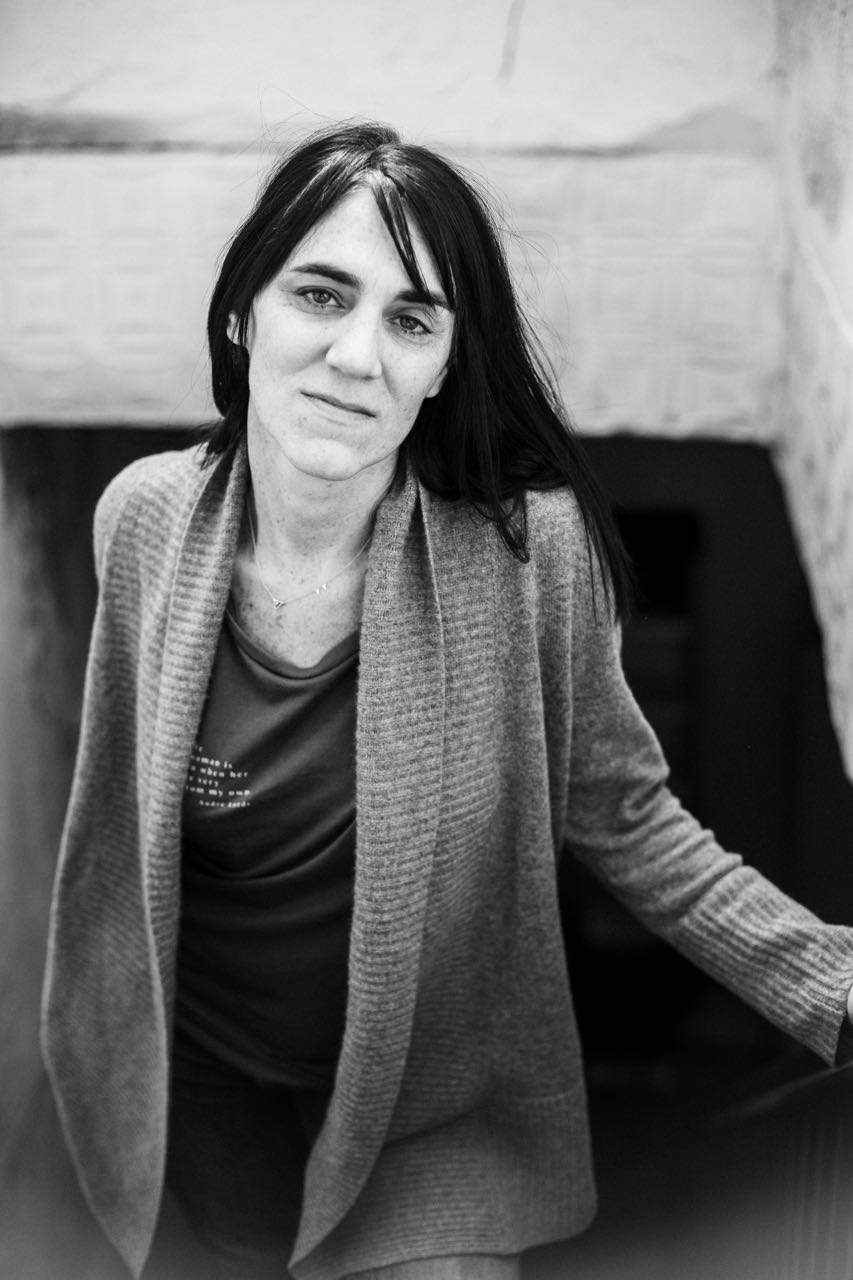
Leigh: I think and struggle all the time with my own desire to make theatre versus what a shit show the world is. On some level, I think it’s very hard to feel that what you’re doing is worthwhile or important when you put it up to the mirror of the rest of the world and the problems that are everywhere. And, inside of you, you have to turn that off in order to do what you’re doing, and that feels inherently essential to personal survival and gain, and also feels against my belief that we should have awareness. On a very personal level I really struggle with, “When does that feel okay? Should it ever be okay? And how do we live with ourselves?” Which I think actually gets to the point of what Madeleine is after in the play. But how do you not think about the sweatshops, how do you not think about what’s happening at the border, and instead be like, “You know what? We’re going to start tech today, so everybody get into costume!” There’s something about [working in theatre] that feels, to me, inherently essential to my life and my well-being and what I want and the thing that I have striven my whole life for, and simultaneously it feels against what I believe that we should be thinking about. That balance of personal with global and where our concerns should be and when to focus them where is something that rolls around in my head all the time.

